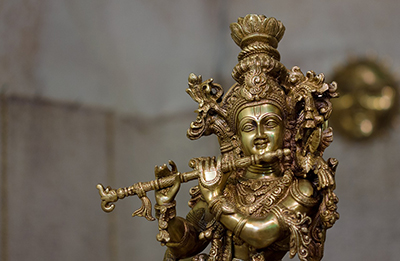This post is based on what I gleaned from an article titled “What Does Chanting Om Mean?” The entire website where that article appears is designed to help Christians feel OK about doing yoga. Frankly, I don’t see how that article can have anything but the opposite effect.
Origin of om
The very first paragraph directly ties the word to Hinduism. When we research the origin of om, we find that it is revered in Hindu writings (the Upanishads and the Bhavagad Gita). In that last, Krishna (a Hindu god) is quoted as saying, “I am the syllable Om.”
Purpose of om
The article indicates that using the om rises above mere words to confront (or attempt to confront) “the Presence within.” And the om “has been considered better fitted than any other sound” to do that. But better considered by whom? Hindu gurus. The problem is that the true Lord God Almighty doesn’t give Christians (or anyone) this instruction for acknowledging him. And if the yoga practitioner isn’t a Christian, exactly what “Presence” is being confronted?
Twisted Christianity
The article attempts to validate use of the om in Christianity by connecting it to Christian “contemplative prayer” and the Psalm 46:10 “be still” directive. That sounds good unless you understand that (1) contemplative prayer (mantra meditation designed to take the person into an altered state of consciousness) isn’t Christian but is an Eastern/occult practice that has, unfortunately, been brought in to certain Christian circles; and (2) this is the typical misuse of Psalm 46:10 in these contexts.
Spiritual superiority
I know of people in yoga classes who are expected to say the om because that’s just how the program works. But this article cautions that the word “is too rich and too exalted for anyone to be capable of using it unless s/he has at least begun to taste the inner experience to which it refers.” We’re told that a Christian who “has tasted the spiritual tradition of India” has an advantage and is “as much entitled as his Hindu brother” to say the om. My opinion is that even Christians who aren’t aiming at a spiritual superiority may still have a naïve sense that saying the om is cool/exotic and possibly sort of “magical.”
Interspirituality
As if we’re not already mixing the world religions enough, this article ends with a substitute for the om; you can use the Jewish shalom if you prefer. But remember, the goal is still to acknowledge or connect with “the Divinity” by means of a so-called sacred word.
For more on yoga, check out my posts “Is It or Isn’t It?” and “Christian Whatever?”

